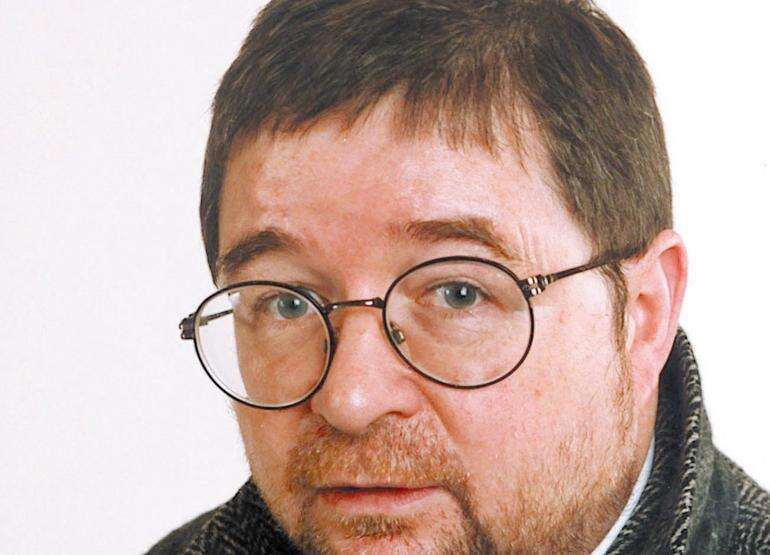
Calls for a renewed investigation into the murder of Sunday World journalist Martin O’Hagan have been shared as the 20th anniversary of his death approaches.
O’Hagan (pictured) was shot dead as he walked home from an evening out with his wife in Lurgan, Co Armagh, on 28 September 2001.
He was the first journalist killed by paramilitaries since the Northern Ireland Troubles erupted in 1969 and was murdered after exposing the actions of Loyalist gangsters.
He was the only journalist to have been murdered on British soil for 18 years until Lyra McKee was fatally shot while covering riots in Belfast in 2019.
Amnesty International and the National Union of Journalists have now called for an independent investigation into his death and raised serious concerns that no one was ever held to account for O’Hagan’s murder.
Robin Wilson, chairman of the NUJ’s Belfast and District branch, said: “It is unconscionable that as the 20th anniversary of Martin’s murder approaches no one has yet been brought to justice for it.
“We believe that an independent investigation should be initiated into his killing as a matter of urgency.
“It’s vital that those who attack journalists and our right to report are brought before the court. Impunity sends a signal, especially in a context where journalists are subject to recurrent hate speech and threats, that perpetrators of such abuse need fear no legal consequences.”
Last week the state of Malta was deemed responsible in a public inquiry into the murder of journalist Daphne Caruana Galizia because it had allowed a culture of impunity to be created.
Amnesty International’s Northern Ireland programme director Patrick Corrigan said: “Twenty years on, Amnesty remains deeply concerned at the failure to hold accountable those responsible for the murder of Martin O’Hagan.
“It has long been suspected that those who ordered his killing were paid police informants linked to an illegal paramilitary group.
“One might imagine that these things only happen in the likes of Colombia. But Martin O’Hagan was murdered in ‘peacetime’ Northern Ireland, where – two decades after his murder – journalists continue to work in a climate of fear amidst regular death threats from such armed groups.
“Journalists everywhere deserve the protection of the societies which they serve. We support the NUJ in their campaign for justice for Martin O’Hagan.”
Sunday World continues to raise concerns about threats to its journalists.
In its latest annual statement to IPSO, written this spring, it noted O’Hagan’s murder as it said: “Our reporters carry out their jobs at no little risk.”
In 2020 alone, two Sunday World journalists were warned by police of
“imminent threats”.
One was alerted by police in the middle of the night to a threat of attack by criminals and loyalist paramilitaries. Both were warned to be vigilant at home and when travelling.
[Read more: Police ‘putting journalists at risk’ in Northern Ireland by refusing to share details of ‘immediate threats’]
Threats from paramilitaries to Sunday World, Sunday Life and Irish News journalists during last year’s lockdown prompted three rival Belfast-based newspapers – the Belfast Telegraph, Irish News and News Letter – to publish a shared statement in solidarity.
As well as O’Hagan, the Sunday World noted that its first editor Jim
Campbell survived a murder attempt by the Ulster Volunteer Force at his front door in 1984 and still has a bullet lodged in his back.
It also said former Northern Editor Jim McDowell required enhanced security at home because of death threats, and was physically assaulted by a UVF gang in Belfast city centre.
The newspaper’s office has been firebombed and had a bomb planted, while death threats to numerous staff members have been received from both republican and loyalist paramilitary groups over the years.
Email pged@pressgazette.co.uk to point out mistakes, provide story tips or send in a letter for publication on our "Letters Page" blog
